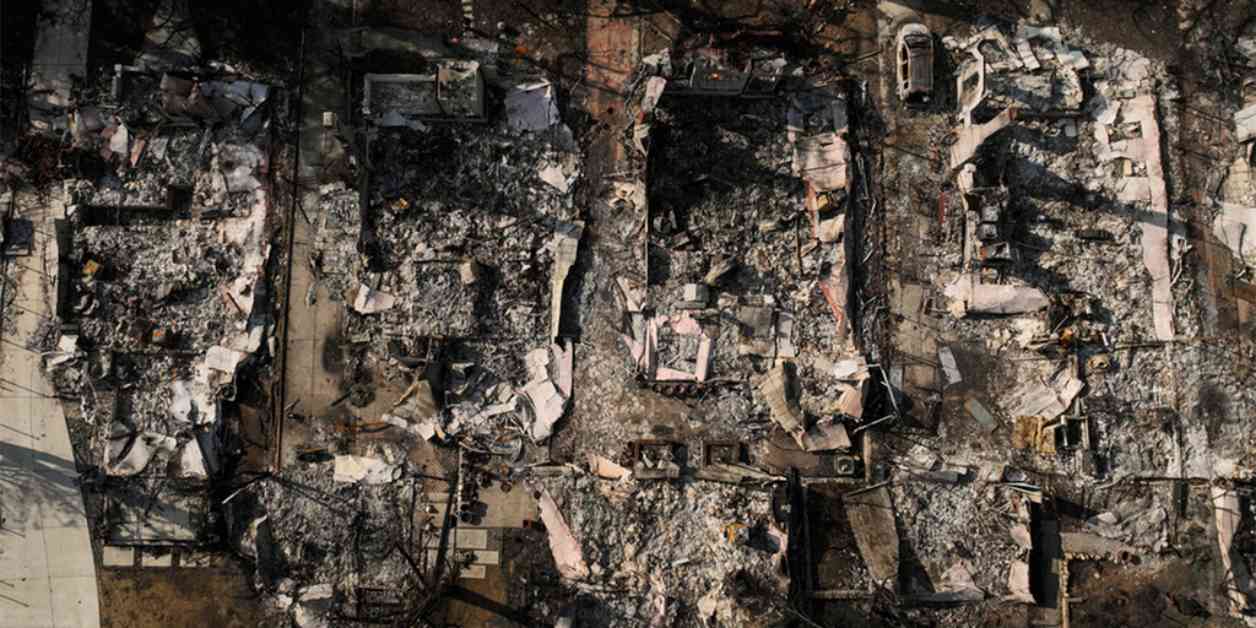A House Hearing Examines the Impact of Regulatory Policy on Natural Disasters
As the devastating wildfires continue to wreak havoc across Southern California, a subcommittee of the U.S. House of Representatives is gearing up to hold a critical hearing on the influence of regulatory policy in preventing such natural disasters. The GOP-led House Judiciary Subcommittee on the Administrative State, Regulatory Reform, and Antitrust is set to kick off the hearing, titled “California Fires and the Consequences of Overregulation,” at 10 a.m. on Thursday.
In the aftermath of the recent fires that have ravaged the Golden State, Governor Gavin Newsom took swift action by suspending regulations related to rebuilding, aiming to expedite the recovery process. This move involved waiving permitting requirements based on the California Coastal Act and the California Environmental Quality Act. The hearing will delve into how these regulatory policies have impacted the prevention of natural disasters, particularly wildfires, in the region.
Examining the Relationship Between Regulatory Policy and Natural Disasters
The upcoming hearing aims to shed light on the intricate relationship between regulatory policy and the occurrence of natural disasters, such as the wildfires that have plagued California. One of the key focal points will be exploring how excessive regulation on insurance and permitting processes can impede the swift recovery and rebuilding efforts in the aftermath of such catastrophic events.
In a bid to address concerns surrounding the accessibility of insurance in fire-prone areas, the largest private insurer in California, State Farm, recently announced its decision to discontinue coverage for 72,000 home and apartment policies. This move has sparked a wave of backlash and raised questions about the availability of insurance for residents affected by the wildfires.
State Farm’s Call for Rate Increases to Mitigate Risk
In response to the escalating risks posed by wildfires, State Farm has requested the California Department of Insurance (CDI) to approve significant rate increases for policyholders. The insurer is seeking a 22% rate hike for non-tenant homeowners, a 15% increase for renters and condo owners, and a 38% spike for rental dwellings. These rate adjustments are intended to mitigate the financial strain on insurers and avert a looming crisis.
State Farm emphasized the urgent need for swift action, citing the unprecedented scale of the disaster and the substantial financial impact on the insurance industry. The insurer has already paid out over $1 billion in claims related to the fires and anticipates that the total cost of these disasters will be among the highest in its history.
Looking Ahead: Efforts to Secure Federal Funding for Wildfire Recovery
The House hearing comes on the heels of Governor Newsom’s visit to Washington, D.C., where he met with President Donald Trump and Congressional members to advocate for additional federal funding to support wildfire recovery efforts. At the forefront of these discussions is the need to bolster resources and financial assistance for communities grappling with the aftermath of the wildfires.
Witnesses at the hearing, including industry experts and policy analysts, will provide valuable insights into the complex interplay between regulatory policy, insurance practices, and disaster recovery efforts. Their testimonies will offer a comprehensive overview of the challenges faced by residents, insurers, and policymakers in navigating the aftermath of natural disasters.
As the nation grapples with the far-reaching impact of wildfires and other natural disasters, the House hearing serves as a vital platform for dialogue, debate, and collaborative action. By examining the role of regulatory policy in shaping disaster prevention and recovery, lawmakers aim to pave the way for more effective and resilient strategies to mitigate the impact of future calamities.
In conclusion, the House hearing represents a crucial step towards fostering a deeper understanding of the regulatory framework governing natural disaster prevention and response. By bringing together diverse perspectives and expertise, policymakers can chart a course towards more robust and adaptive policies that safeguard communities and enhance disaster resilience.

